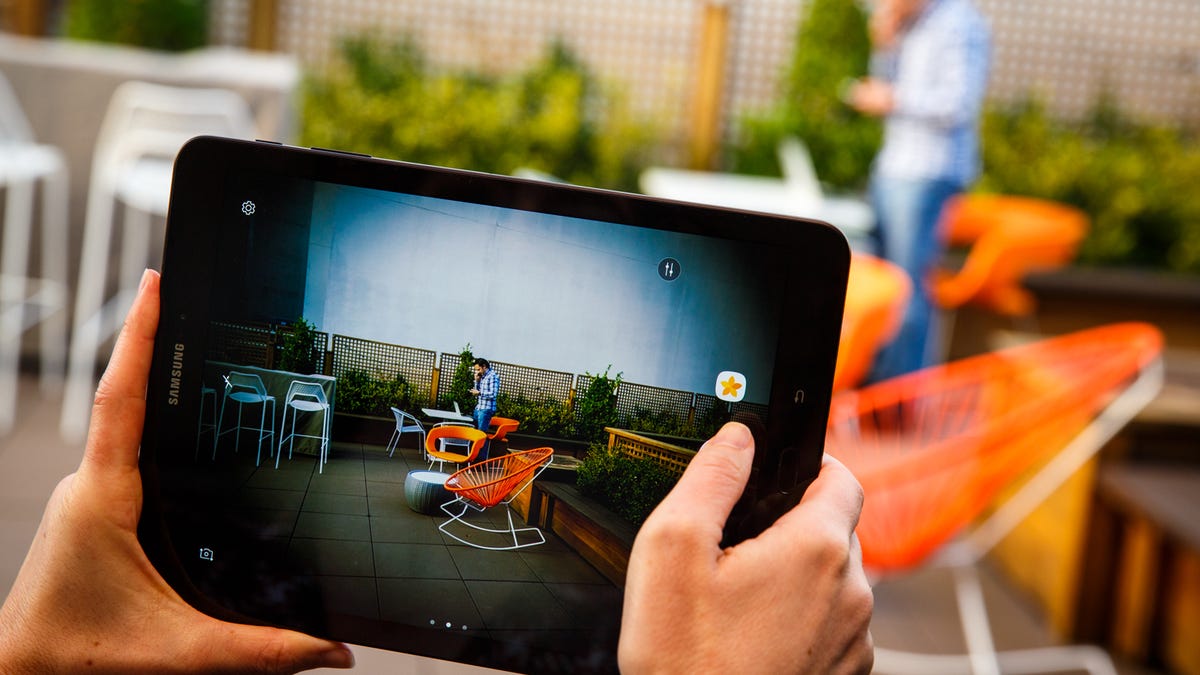Samsung bets on tablets -- at a time no one's buying them
The company's two new devices and stylus take aim at Apple's iPad Pro and Microsoft's Surface. But will anyone bite?

Samsung introduced two new tablets at Mobile World Congress in Barcelona.
Samsung's big news at Mobile World Congress isn't the Galaxy S8. It's two revamped tablets.
The only trouble is, nobody's really buying tablets anymore. Just ask Apple.
People are holding onto tablets longer (viewing them more like PC upgrades than phones). Ever-larger phone screens are making tablets less compelling. On top of that, many US consumers would rather spend their money to upgrade their phones than on tablets or wearables. All of that has resulted in a freefall in tablet sales.
Global tablet shipments dropped for ninth consecutive quarter in the last three months of 2016, according to tech tracker IDC. Things have been even worse for market leader Apple. Sales of its device have dropped for 12 straight quarters. Still, one out of every four tablets shipped is an iPad.
"The entire market has been contracting," IDC analyst Ryan Reith said. "People are doing more on their phones."
Samsung hasn't escaped unscathed: It's currently No. 2 in the tablet market, behind Apple, but accounted for only 15.1 percent of shipments in the fourth quarter of 2016. And while its market share increased in the period 13.6 percent a year ago, it shipped 11 percent fewer devices than it did a year earlier.
The South Korean electronics giant is hoping its two new devices -- the 9.7-inch, Android-based Tab S3 and the 10- and 12-inch Microsoft Windows-powered Galaxy Book -- dazzle customers who want tablets that can do more than play movies and browse the internet. Both are made from premium materials such as glass and come with Samsung's redesigned S-Pen that, unlike the Apple Pencil, doesn't need to be charged.
"What's going on in the market is people want more," Hassan Anjum, senior manager of product marketing for Samsung's tablets, said in a meeting with CNET and other media before the company's announcement Sunday at Mobile World Congress in Barcelona, Spain. "Folks love consuming media on their tablets, but what we're seeing is rising demand for 2-in-1 tablets."
Keyboard optional
Samsung's new devices go after that one bright spot in tablets: so-called detachables. Think of these as a kind of hybrid notebook computer/tablet versus "slates" that are more like super-sized phones. Detachables, also called 2-in-1s, either come with bundled keyboards or offer them as options. Most have styluses, too. Apple's iPad Pro fits in this category; older iPads, like the Air 2, are slates.
Last year, the slate sector dropped close to 20 percent, according to IDC, on top of 2015's 15 percent slide.
"The market essentially peaked in 2014," IDC's Reith said.
The market for detachables, though, has been growing. In 2016, that market increased 25 percent, IDC said, with devices from Apple and Microsoft proving popular with consumers. Still, detachables accounted for only 12 percent of total tablet volume in 2016, nowhere near enough to offset the slate market's spiraling decline.
Samsung's hoping to appeal to fans looking for alternatives to Apple's iPad Pro or Microsoft's Surface Pro. The company will bundle its stylus with both the Android Tab S3 and the Windows Galaxy Book and will include the keyboard case for free with the Windows device (Microsoft and Apple sell their keyboard cases separately).
Samsung didn't reveal pricing or availability, but it's a good bet the tablets will be positioned at the high end of the tablet market. That could be a tough sell for the Android Tab S3 (there are plenty of cheap Android tablets out there), but people are already are used to higher prices for Windows 10 tablets.
"Most of the people buying [detachable tablets] are buying them as notebook replacements, not tablets," said Jack Gold, an analyst with J. Gold Associates. "People are using them for productivity applications...and most of the time, the keyboard never comes off."
Whether or not you like the keyboard, Samsung's just hoping the features in its new tablets are enough to woo you away from that iPad -- or laptop -- you've held onto for years

